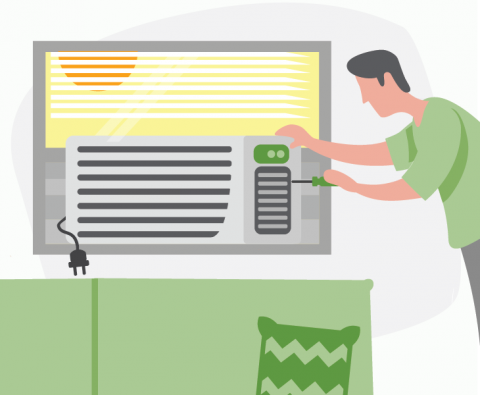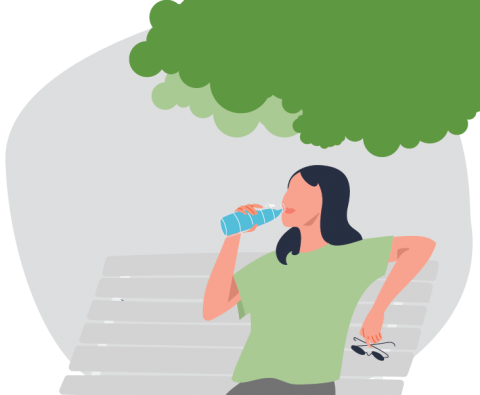Extreme heat safety is crucial as summer temperatures soar to dangerous levels. To prevent heat exhaustion and heat stroke, stay hydrated by drinking plenty of water, seek shade or air-conditioned spaces, and avoid strenuous outdoor activities during peak sun hours (typically 10 AM to 4 PM). Practice summer heat protection by checking on vulnerable neighbors, especially the elderly and those with health conditions. Never leave children or pets in parked cars, as vehicle temperatures can rise rapidly. Let’s prioritize heat wave preparedness and look out for each other during these hot summer months to ensure community heat safety.
Prepare for Extreme Heat
- Learn to recognize the signs of heat illness.
- Do not rely on a fan as your primary cooling device. Fans create air flow and a false sense of comfort, but do not reduce body temperature or prevent heat-related illnesses.
- Identify places in your community where you can go to get cool such as libraries and shopping malls or contact your local health department to find a cooling center in your area.

- Cover windows with drapes or shades.
- Weather-strip doors and windows.
- Use window reflectors specifically designed to reflect heat back outside
- Add insulation to keep the heat out.
- Use a powered attic ventilator, or attic fan, to regulate the heat level of a building’s attic by clearing out hot air.
- Install window air conditioners and insulate around them.
- If you are unable to afford your cooling costs, weatherization or energy-related home repairs, contact the Low Income Home Energy Assistance Program (LIHEAP) for help.
Be Safe DURING
- Never leave people or pets in a closed car on a warm day.
- If air conditioning is not available in your home go to a cooling center.
- Take cool showers or baths.
- Wear loose, lightweight, light-colored clothing.
- Use your oven less to help reduce the temperature in your home.
- If you’re outside, find shade. Wear a hat wide enough to protect your face.
- Drink plenty of fluids to stay hydrated.
- Avoid high-energy activities or work outdoors, during midday heat, if possible.

- Check on family members, older adults and neighbors.
- Watch for heat cramps, heat exhaustion and heat stroke.
- Consider pet safety. If they are outside, make sure they have plenty of cool water and access to comfortable shade. Asphalt and dark pavement can be very hot to your pet’s feet.
To learn more about how to stay safe in extreme heat, visit https://www.ready.gov/heat






